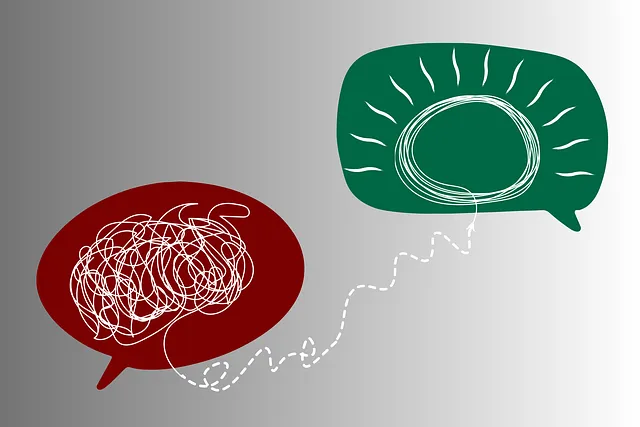Golden Kaiser Permanente behavioral health services promote positive thinking as a holistic approach to well-being, empowering individuals to navigate challenges with optimism and resilience. Through mindfulness meditation, acts of kindness, effective communication, CBT, and EMDR, they cultivate compassion, emotional regulation, and unique coping strategies tailored to individual needs. By prioritizing self-awareness, tracking progress, and fostering understanding, this program supports mental wellness, reduces stress, improves relationships, and combats mental illness stigma, enabling individuals to lead more balanced lives.
“Unleash your inner strength with positive thinking exercises—a powerful tool for transforming your mindset and enhancing well-being. This comprehensive guide explores how adopting a positive mindset can significantly impact your life, drawing from expert insights provided by Kaiser Permanente Behavioral Health Services, renowned for its holistic approach. Discover golden rules to integrate daily positivity practices into your routine, creating a personalized program for lasting change.”
- Understanding Positive Thinking: Unlocking the Power of Mindset
- Golden Rules for Incorporating Daily Positivity Practices
- Kaiser Permanente Behavioral Health Services: A Holistic Approach to Well-being
- Creating a Personalized Thinking Exercise Routine
- Measuring Success and Sustaining Positive Changes
Understanding Positive Thinking: Unlocking the Power of Mindset

Positive thinking is a powerful tool that can transform lives, as emphasized by Golden Kaiser Permanente behavioral health services. It involves a conscious shift in mindset, where individuals focus on optimistic interpretations and expect positive outcomes. This simple yet profound practice has been supported by extensive research in mental health policy analysis and advocacy, showing its potential to improve overall well-being. By cultivating emotional regulation and compassion cultivation practices, people can better navigate challenges and enhance their resilience.
The benefits of positive thinking extend beyond mere happiness; it can reduce stress, improve relationships, and even boost physical health. Unlocking the power of a positive mindset allows individuals to reframe setbacks as opportunities for growth and learning, fostering a more adaptive and resilient response to life’s ups and downs. This approach is not about ignoring difficulties but rather developing a mental framework that promotes a healthier and more balanced perspective, ultimately contributing to a more fulfilling and meaningful life.
Golden Rules for Incorporating Daily Positivity Practices

Incorporating daily positivity practices into your routine is a transformative journey that can significantly enhance well-being, as highlighted by Golden Kaiser Permanente behavioral health services. At the heart of this process are several golden rules that serve as guiding principles. Firstly, Compassion Cultivation Practices play a pivotal role in fostering empathy and kindness towards oneself and others. Regularly practicing mindfulness meditation or engaging in acts of kindness can help cultivate a more positive mindset.
Secondly, effective communication strategies are essential for spreading positivity. Expressing gratitude, offering sincere compliments, and actively listening to others not only strengthen relationships but also create a ripple effect of optimism. Lastly, trauma support services like cognitive behavioral therapy (CBT) or eye movement desensitization and reprocessing (EMDR) can be invaluable tools in processing past experiences and replacing negative thought patterns with more positive and resilient ones.
Kaiser Permanente Behavioral Health Services: A Holistic Approach to Well-being

Kaiser Permanente Behavioral Health Services takes a holistic approach to well-being, recognizing that mental wellness is intricately linked with physical health and social connections. They offer a range of services designed to empower individuals in managing their emotional regulation and fostering empathy within their communities. Through innovative programs and therapeutic practices, Kaiser Permanente aims to cultivate a supportive environment where people can navigate life’s challenges with resilience and a positive mindset.
The Golden Kaiser Permanente behavioral health services focus on comprehensive care, addressing not just symptoms but the underlying causes of distress. They employ advanced Empathy Building Strategies that encourage active listening, understanding, and compassion among individuals and healthcare providers alike. By prioritizing emotional regulation as a cornerstone of their practice, they enable clients to develop coping mechanisms that promote mental wellness in the long term.
Creating a Personalized Thinking Exercise Routine

Creating a personalized thinking exercise routine is an empowering step towards enhancing mental well-being and tackling the stigma surrounding mental illness. Golden Kaiser Permanente behavioral health services offer a wealth of resources, including self-awareness exercises tailored to individual needs. By incorporating these practices into daily life, individuals can develop resilience and coping strategies that are uniquely theirs.
This journey begins with introspection, where one identifies triggers and negative thought patterns specific to their experience. Cultural sensitivity in mental healthcare practice plays a vital role here, ensuring that the chosen exercises resonate with personal beliefs and values. Whether it’s mindfulness meditation, positive affirmation journaling, or cognitive reframing techniques, these tools can be adapted to create a holistic routine. Regular engagement in such self-Awareness exercises not only promotes emotional balance but also contributes to long-lasting mental illness stigma reduction efforts.
Measuring Success and Sustaining Positive Changes

Measuring success is a vital step in any positive thinking exercise, especially when aimed at long-term behavioral changes. The Golden Kaiser Permanente behavioral health services approach emphasizes tracking progress to ensure the effectiveness of interventions and identify areas for improvement. By setting clear goals and utilizing measurable outcomes, individuals can objectively assess their journey towards mental well-being. This process allows for adjustments in strategies and fosters a sense of accomplishment as positive changes are quantified.
Sustaining these transformations requires ongoing practice and commitment. The Risk Management Planning for Mental Health Professionals plays a crucial role here by equipping professionals with tools to support clients’ coping Skills Development. Techniques like mindfulness meditation, cognitive reframing, and positive self-talk can significantly contribute to Anxiety Relief. Through regular implementation and integration into daily routines, these practices become sustainable habits, reinforcing the positive changes initiated during the initial thinking exercises.
Implementing positive thinking exercises, as demonstrated by Kaiser Permanente behavioral health services, can significantly enhance overall well-being. By adhering to the golden rules outlined in this article and creating a personalized routine, individuals can unlock the power of mindset transformation. Measuring success involves tracking emotional shifts and sustaining changes through consistent practice. Remember that cultivating positivity is a journey; with dedication, these exercises can lead to a more fulfilling and resilient life.





